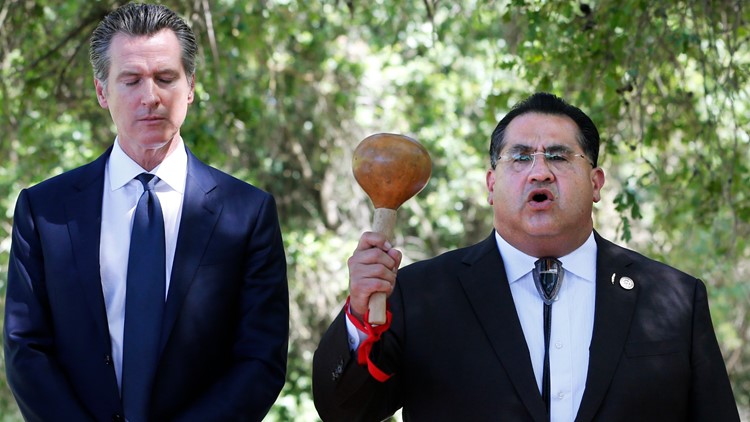SACRAMENTO, Calif. — Last week California Gov. Gavin Newsom signed at least 10 bills to support Native American communities including creating a monument at the Capitol Park, health care access for Native American children, and replacing Columbus Day judicial holiday with one honoring Native Americans, among others.
California Assemblymember James Ramos, the first Native American to be elected to the legislature, authored six of the bills. On Monday Ramos told ABC10 the next bill he's working on ways to increase the representation of Native American peoples in school curriculum.
It's called the California Indian Education Act. Ramos introduced the bill in March, which would include the history and culture of California Native Americans in social studies curriculum for third, fourth, eighth and eleventh grade.
"There's no way you can learn about the history of the state of California unless you include California's first people," Ramos said.
Ramos said the history of Native American people has not been told from a first-person perspective.
"California's first people still are dealing with a history that people don't really know, that people don't really acknowledge," Ramos said. "It's been a history that's been told by the oppressor, but not from the people themselves. Now we're going to be able to tell that history and story moving forward."
Ramos said the perspective of the explorers when they first arrived in current-day California, has been carried on throughout history and education is a way to shift that mentality.
"That's where we need to be going to make sure that we're inserted in the schools and in the books so that we could actually start to show that part of history and be that voice that needs to be included," Ramos said.
Ramos said it's important to include this history of Native American people in education to show a full history of the state.
"California's first people still are dealing with a history that people don't really know, that people don't really acknowledge. It's been a history that's been told by the oppressor, but not from the people themselves," Ramos said. "Now we're going to be able to tell that history and story moving forward."
In reflecting on his six bills that were passed last Friday on Native American Day, Ramos said he feels a sense of responsibility as a Native American and assembly member.
"Do I feel a sense of responsibility? The answer is yes," Ramos said. "And that responsibility is to make sure that those voices that are crying out from the grounds here in the state of California tell the people who we truly are, as the California Indian people."
One of Ramos' bills will place a monument in Capitol Park, where the Junipero Serra statue stood before it was torn down by demonstrators in July 2020.



















